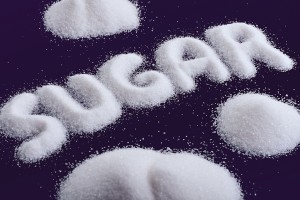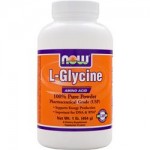By Anthoney J. Andersen – Steroidal.com
No matter what your lifestyle and diet plan may be, there’s one common link that connects us together: sugar.
Whether your guilty pleasure is ice cream, cheesecake, candy or a morning mocha or Frappuccino, they all contain sugar.
In today’s market, food manufacturers have found a way to sweeten your favorite foods and beverages by using less sugar, while increasing its potency.
The food additive that has created quite a buzz in the nutrition world is known as aspartame.
Aspartame was discovered in 1965 by researchers who were trying to create a new antiulcer drug. According to Drugsdb.com, combining phenylalanine (an essential amino acid) and aspartic acid (a non-essential amino acid) creates aspartame.
Aspartame is a low-calorie sweetener, which is approximately 200 times sweeter than sucrose.
Over the years, nutritionists and researchers have battled back and forth about the pros and cons of aspartame.
Is it healthier than actual sugar? Or is it a dangerous alternative?
You be the judge.
BENEFICIAL ENHANCEMENT
For more than 187 million Americans, low-calorie sweeteners allow people an opportunity to enjoy great-tasting foods and beverages without the calories.
Living a more active lifestyle while maintaining a healthy weight has been the motivation behind many consumers’ decision to move to a sugar-free diet by adopting foods and beverages that contain aspartame.
WEIGHT MANAGEMENT
According to the American Heart Association, nearly two out of three Americans are classified as obese. So, it’s safe to conclude that managing your weight and watching your calorie intake is of great importance.
Because foods containing aspartame are lower in calories, combining such foods with regular physical exercise can help manage a person’s weight.
IDENTICAL IN TASTE
According to The NutraSweet Company, studies have been conducted involving taste –test panels that proved to researchers that consumers believe aspartame tastes almost equivalent to sugar.
FLAVORFUL ERUPTION
Aspartame contains the ability to magnify and lengthen the life of fruit flavors like strawberries, cherries and citrus flavors.
An example of this is chewing gum. When aspartame is added to the mix, the flavor and life of the gum lasts longer than that of sugar-sweetened gum.
DIABETIC RESCUE
Aspartame provides individuals with diabetes a chance to enjoy their favorite sweets while helping them regulate their carbohydrate intake and complying with a healthy meal plan.
DOUBLE-EDGED SWORD
While aspartame has many proven health benefits, some researchers still remain skeptical, and believe the low-calorie sweetener may do more harm to a person’s health than good.
CONFLICTING OUTCOMES
Out of the 166 studies conducted on aspartame, the NutraSweet Company funded 74 of them, which found aspartame to be safe. However, 92 studies were done independently and found problems with regards to its safety.
SIDE EFFECTS
According to H.J. Roberts, MD, aspartame is responsible for roughly 80 percent of complaints filed to the FDA about food additives.
Some side effects that were reported due to aspartame include dizziness, nausea, vomiting, change in mood, headache, memory loss, diarrhea and fatigue.
Aside from these symptoms, aspartame consumption has also been linked to such health problems as fibromyalgia symptoms, depression, multiple sclerosis and joint pain.
The FDA has taken these reports into account and returned to the lab to test aspartame further.
After reevaluating the popular sugar substitute, the FDA still stands by their conclusion that aspartame is still a safe alternative.
However, the debate still continues as more studies are being conducted.
DAILY INTAKE OF ASPARTAME
Like with most foods or supplements, it is best to watch your daily intake of aspartame.
The FDA recommends that the amount of aspartame should not exceed 50 mg/kg of body weight. For example, if you weigh 200 pounds, then your aspartame intake should not exceed 4,550 mg.
The following is a list of foods and beverages that contain aspartame:
- Diet soda, 12 oz.: 225 mg
- Powdered drinks, 8 oz.: 100 mg
- Yogurt, 8 oz.: 80 mg
- Sweetened cereal, ¾ cup: 32 mg
- Equal, 1 packet: 22 mg
- Equal, 1 tablet: 19 mg
CONCLUSION
Even though aspartame is regulated for use in over 100 countries and is reported safe by the FDA, there still may be some kinks to work out when it comes to being 100 percent healthy.
The low-calorie sweetener does contain many health advantages and may be a good substitute for sugar for many individuals with health issues.
Furthermore, it’s important to be aware of the amount of aspartame in your daily foods as a way to reduce your chances of having an adverse reaction to the additive.
Consume responsibly.








